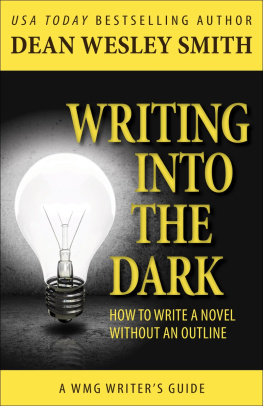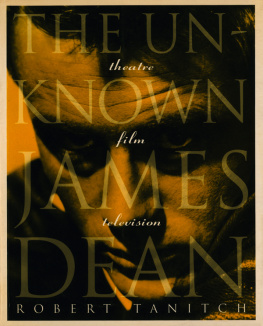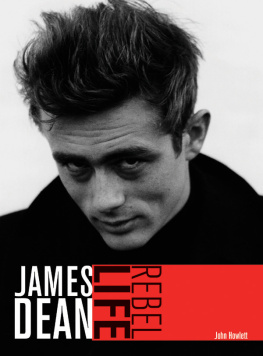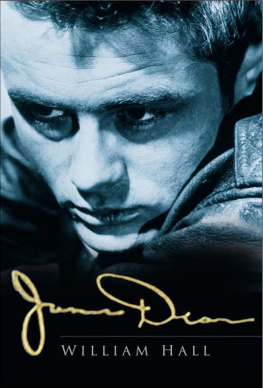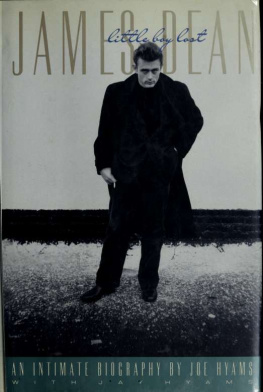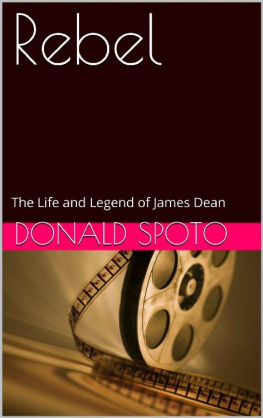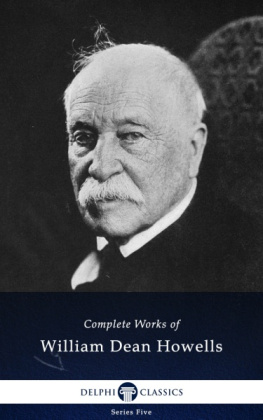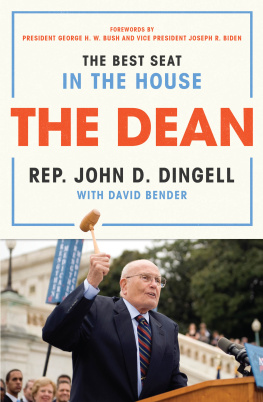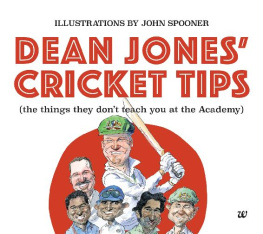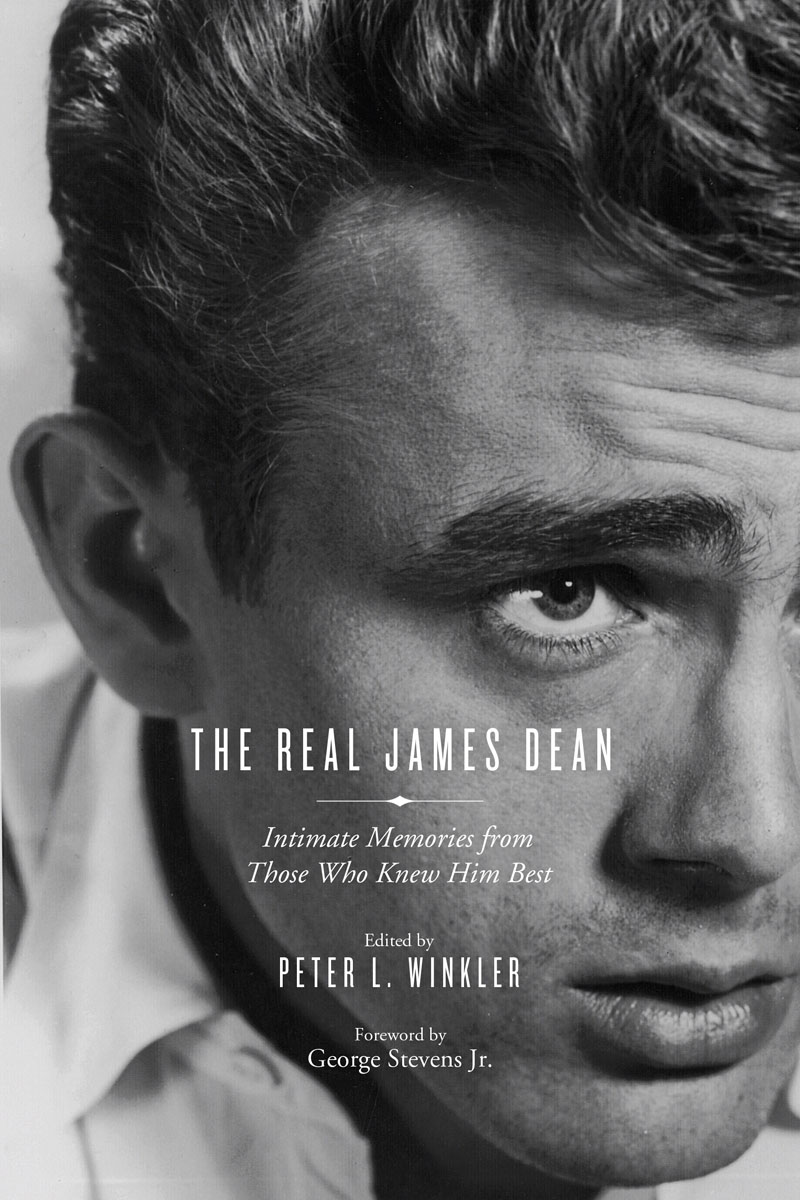
Copyright 2016 by Peter L. Winkler
All rights reserved.
Published by Chicago Review Press Incorporated
814 North Franklin Street
Chicago, Illinois 60610
ISBN 978-1-61373-472-8
A list of credits and copyright notices for the individual pieces in this collection can be found on pages 33336.
Library of Congress Cataloging-In-Publication Data
Names: Winkler, Peter L., editor.
Title: The real James Dean : intimate memories from those who knew him best / edited by Peter L. Winkler ; foreword by George Stevens.
Description: Chicago, Illinois : Chicago Review Press, 2016. | Includes index.
Identifiers: LCCN 2015050679 (print) | LCCN 2016003409 (ebook) | ISBN 9781613734728 (paperback) | ISBN 9781613734711 (pdf) | ISBN 9781613734742 (epub) | ISBN 9781613734735 ( kindle)
Subjects: LCSH: Dean, James, 19311955. | Motion picture actors and actressesUnited StatesBiography. | BISAC: BIOGRAPHY & AUTOBIOGRAPHY / Entertainment & Performing Arts. | PERFORMING ARTS / Film & Video / History & Criticism.
Classification: LCC PN2287.D33 R43 2016 (print) | LCC PN2287.D33 (ebook) | DDC 791.4302/8092dc23
LC record available at http://lccn.loc.gov/2015050679
Cover design: John Yates at Stealworks
Cover image: Photofest
Interior design: Jonathan Hahn
Printed in the United States of America
5 4 3 2 1
All of us were touched by Jimmy, and he was touched by greatness.
N ATALIE W OOD
CONTENTS

Index
FOREWORD

H E MADE ONLY THREE MOTION PICTURES, yet sixty years after his death he remains one of the worlds iconic movie stars.
James Dean made his mark and left his legacy in only eighteen months. His premature death at twenty-four in a highway collision shocked the world, and conferred legendary status to a young man at the very beginning of what those who knew him expected would be a long and productive career.
I was on leave from the air force in March of 1955 when I went with my father to Hollywoods Egyptian Theatre to see East of Eden in its first week of release. He would soon start directing Giant and he wanted me to see the actor he was considering for the role of Jett Rink. I recall vividly my first impression of the young man with an agile gait and mysterious eyes, whom Elia Kazan had cast as Cal Trask in the film adaptation of John Steinbecks novel. Knowing that my father had considered Alan Ladd and Montgomery Clift for the role of Jett, I was excited by the prospect of this mercurial twenty-four-year-old playing the pivotal character in Giant, a character required to age into his fifties on screen.
I met Jimmy Dean in Marfa, Texas, several months later. He was on the Giant set in his worn and dusty jeans, a work shirt and vest, wearing a soiled western hat. He had become Jett Rink and spent his idle time on the set mastering rope tricks. Jimmy was nearsighted, and working without glasses seemed to produce in his eyes a concentration and intensity that made the camera embrace him. He was compelling and he was unpredictable. He could be warm, entertaining, and fun to be with. And he could be diffident and inconsiderate of those around him. He could be brilliant and intriguing in front of the camera, and he could be unfocused and mannered in front of the camera.
I spent several months in the editing room during the final stages of Giant. One of Deans finest moments on screen takes place in the office of Bick Benedicts gothic ranch house. Benedict, played by Rock Hudson, informs Jett that Bicks deceased sister, in a sentimental gesture, left a little parcel of land to him. Then Bick places an imposing stack of bills on the desk to buy the land back, wishing to keep his ranch whole. Jett studies the men in the room, forcing us to wonder what he is thinking, before saying to Bick, You know something, Bick, I dont know but what it just might not be a pretty good idea to gamble along with old Madama. Just keep what she give me. Im sentimental too, Bick. He then rises, gives the men a crooked smile, and swings his rope in a little move, making a knot. As he approaches the door, he turns, saying, See ya, and sweeps his right hand outward, Deans signature gesture for Rink. Of course, those few acres make Jett Rink an oil tycoon.
My father, who covered scenes from many angles in order to have options in editing, selected a single take featuring Dean in that scene, and let it run uninterrupted for three minutes and forty-seven seconds in the final film because his performance was so compelling. Dean would sometimes stammer, repeat gestures, and insert pauses into other scenes, sapping them of energy, but with the coverage at hand my father was able to shape his performance and retain Deans compelling characterization.
I visited the Giant set at the Warner Bros. studio in September of 1955. Jimmy had completed most of his work by then, but he dropped by that day for a visit. He talked enthusiastically about the Porsche 550 Spyder he had just purchased and his plans for racing it. When Jimmy was cast as Jett, he had driven a Porsche Super Speedster in some races in California, winning two prizes. My father understood the attraction of fine cars. He drove one of the first Mercedes-Benz 300SL Gullwing coups. He sat down with Jimmy and they discussed their cars before my father told him that they were embarking on an ambitious film with a long shooting schedule, and while he had confidence in Jimmys driving skill, if he were injured on the track he would jeopardize the efforts of the three hundred people who were working on the film. He said it was important that Jim not race his car during production. Despite his rebellious tendencies, Jimmy understood the situation and agreed. And he kept his word.
Now, on the set of Giant he told me that his new car, which he nicknamed Little Bastard, was parked outside and asked if Id like to go for a ride. We went out and admired the sleek gray machine with red racing seats. We climbed in; Jimmy fired it up and took off, driving faster through the narrow streets that ran between the tall soundstages than the studio police would have liked. It was an exciting ride, and Jimmy, with his tousled hair and clip-on sun lenses over his thick glasses, was steady at the wheel. I was twenty-three, a year younger than Jimmy, and I shared his sense of adventure, and the fast ride gave me no premonition of trouble.
When he finished shooting his last scene, he told my father that he was going to enter a race in Salinas, three hundred miles north of Los Angeles. My father recalled suggesting that he truck his Porsche up north rather than driving it on the highway. Jimmy said that was his plan. On the morning of his trip, however, he changed his mind, telling his mechanic that he wanted to gain experience driving his new car before the race.
A stunned world heard the news of Deans fatal crash on September 30, 1955. The shock of his violent death initiated a concentrated and prolonged media frenzy, fueled by a growing base of Dean fans and bizarre rumors surrounding his death. The articles in this book reflect the passion and breadth of that feeling.
In The Real James Dean: Intimate Memories from Those Who Knew Him Best, Peter Winkler has assembled a comprehensive trove of what has been written over the decades about the young actor by his contemporaries. It offers Dean enthusiasts a unique anthology of articles, essays, and remembrances that demonstrate how he revealed himself in different ways to different people. Among the fascinations of this collection are the contradictions in the various accounts, each observer drawing his or her own portrait of the young actor, marked by differing perceptions and conflicting facts.
Next page


